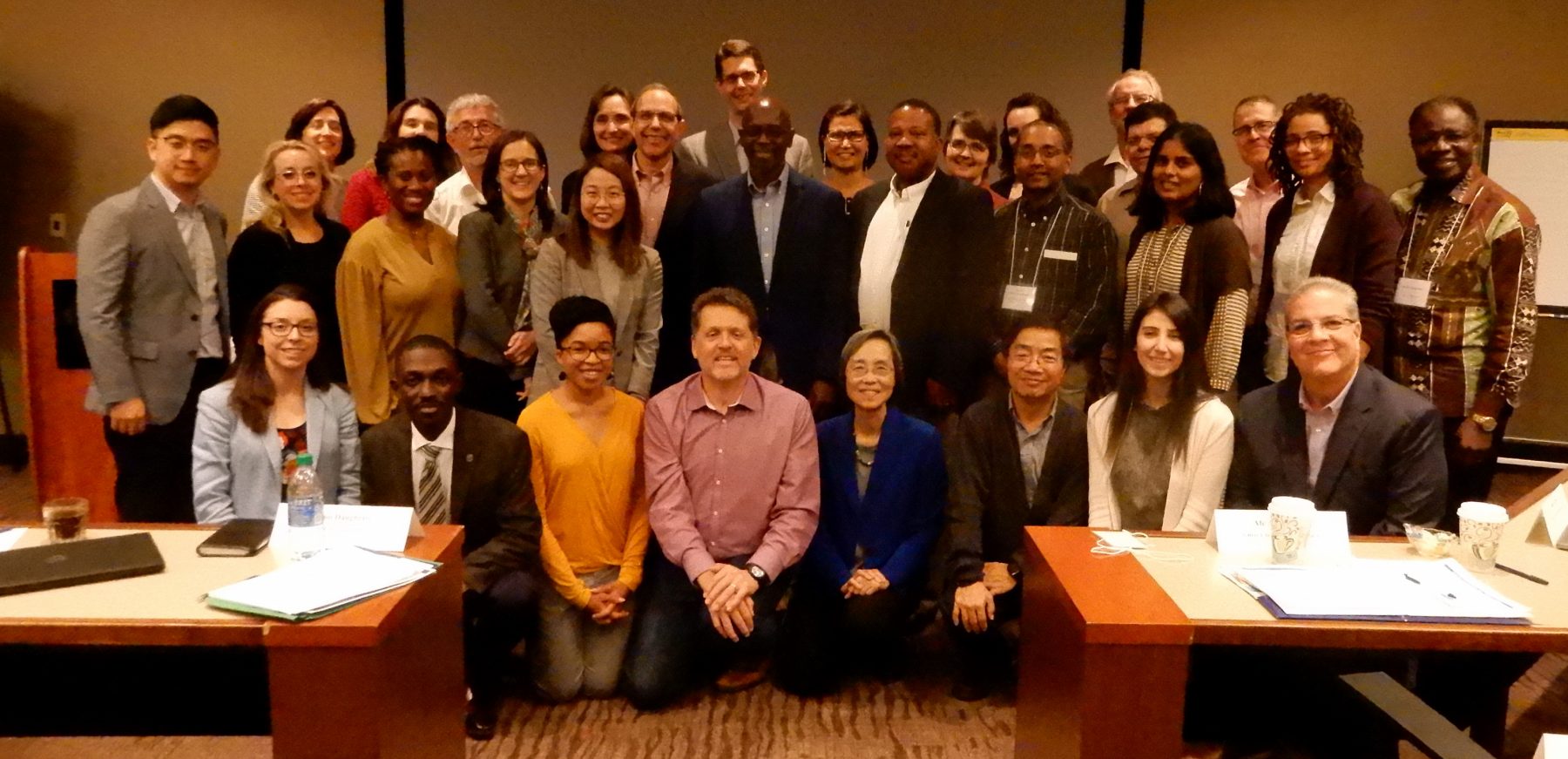What is World Christianity, Anyway?
DR. GINA A. ZURLO
Co-Director, Center for the Study of Global Christianity
World Christianity has become a very popular academic field since its inception in the 1980s. We see new MA and PhD programs popping up around the country, a constant stream of new journals and book series, and popular conferences that attract scholars from around the world. But when we say, “World Christianity,” what exactly do we mean?
From Oct 17–19, I attended a World Christianity consultation at Emory University. This was a rather historic gathering of scholars from a variety of disciplines – history, theology, religious studies, social sciences – who all consider themselves World Christianity scholars. Its purpose was to examine and discuss key issues and relevant debates in the field and start to answer some important questions: What is a World Christianity program? How do you hire World Christianity faculty? What is the difference between a World Christianity program in a university vs. a seminary? Discussions were held on the state of this field from six perspectives: the conception of the field; its institutional frameworks; curricula; methodology; guild; and the field’s global nature.

Here are some of the takeaways I gleaned from this gathering:
- World Christianity is inherently interdisciplinary and represents a network of disciplines. There is a lot of overlap between World Christianity and other fields: area studies, anthropology, theology, etc. Carlos Cardoza-Orlandi provided the helpful analogy of swimming across lanes. We have a primary lane we swim in, but World Christianity allows us to swim across lanes to see what methods and perspectives other disciplines can provide to help illuminate our studies.
- An ironic question was raised: Is World Christianity overly Afro-centric? Most of the founders of the field are scholars of African Christianity – Andrew Walls, David Barrett, Lamin Sanneh, Dana Robert, and others. As a result, World Christianity appears to have an emphasis on African Christianity, though part of this is simply because of the massive growth of Christianity in sub-Saharan Africa during the 20th This raises a series of questions: Is there too much of an African focus in World Christianity studies? Have we placed too much of an emphasis on growth and not enough on decline or stasis? What do we do with the fact that most of the founders of World Christianity were Africanists – white scholars studying Africa – not necessarily Africans themselves?
- On a related point, more needs to be done on studies of Christianity in Latin America, the Middle East, and Oceania. I noticed this myself while working on the World Christian Encyclopedia, 3rd edition. Part of this lack of representation is that most scholarship in World Christianity is written in English and not translated into other languages.
- The issue was raised that this particular conference should have perhaps had a seventh focus area on issues related to World Christianity such as gender, climate change, politics, social concerns, poverty, etc. Many participants particularly noted the lack of discussion concerning Christianity and gender.
At the end of the gathering, Emma Wild-Wood made a valiant effort to describe World Christianity as a field:
“The study of World Christianity is a synthetic and collective approach to studying Christian peoples, practices, thought and environment across the globe. It attends to diversity and interconnectedness. It often prioritises marginality (in its various forms). It uses a variety of methods and works across disciplines (drawing particularly, but not exclusively, upon history, theology and ethnography). It is committed to engage with Christians worldwide. It is informed by scholarship in other parts of the globe and is based primarily in the North Atlantic as a corrective to western-centric scholarship.”
I think this is an excellent description except for one missing element that was underemphasized at the Emory consultation as well: mission. The relationship between mission and World Christianity is a prickly subject, as mission is perceived as colonial while World Christianity is perceived as holistic. The debate continues on the role of mission in World Christianity studies. The Emory consultation provided participants the space to speak openly about their concerns about the field and to ask important, pressing questions about the training of new scholars.
For more information on World Christianity as a discipline, check out these links:
- Yale-Edinburgh Group on World Christianity and the History of Mission
- Princeton Theological Seminary’s World Christianity Conference
- Studies in World Christianity
- The Journal of World Christianity
- Understanding World Christianity series from Fortress Press
- Edinburgh Companions to Global Christianity series from Edinburgh University Press
- Blog post by Jonathan Bonk, “Why ‘World’ Christianity?”
- Blog post by M. Thomas Thangaraj, “What in the World is World Christianity?”